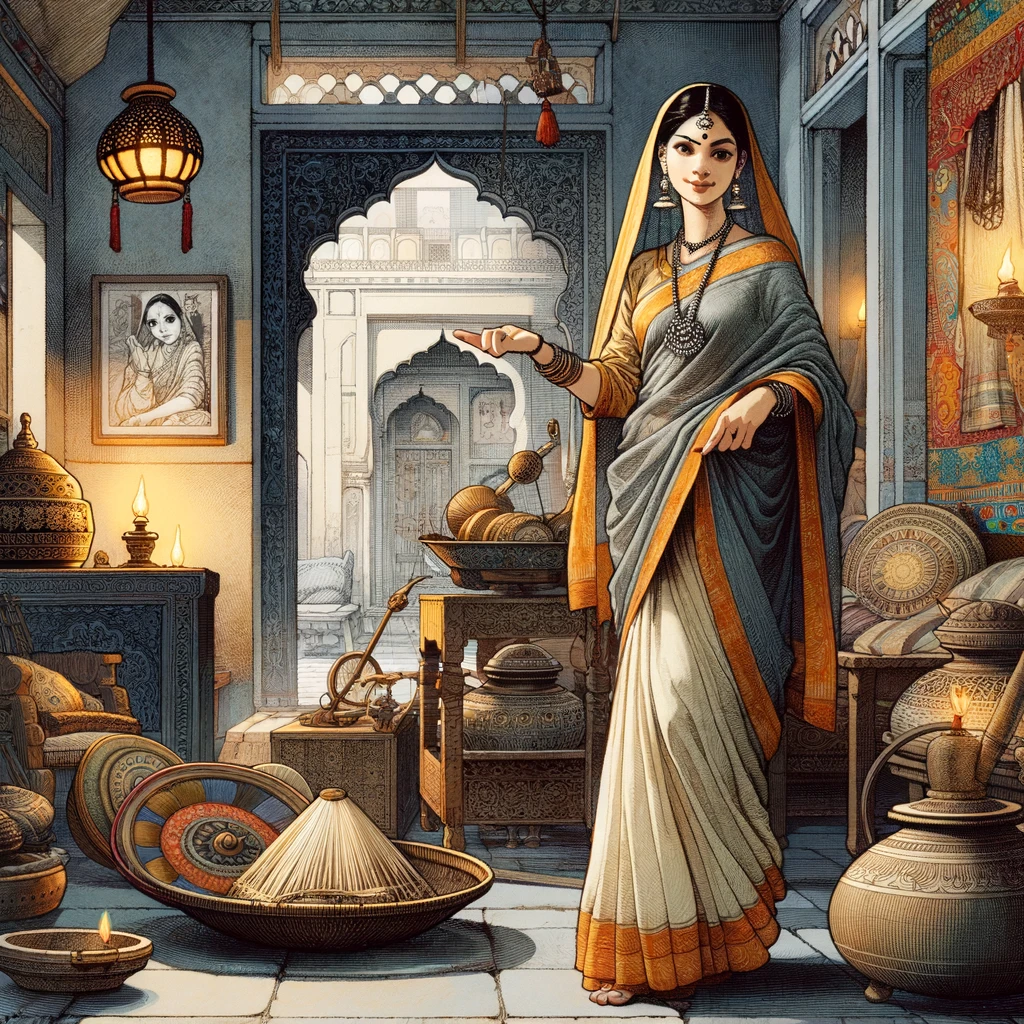While walking, Godly saw a weaver and his wife heading to the next town to buy some drinks. Godly called out to the weaver, saying he was a guest and needed a place to stay because it was getting late and he didn’t know anyone from the village. He reminded the weaver that it was good to take care of guests, especially in the evening.
The weaver told his wife to take Godly home, be nice to him, and give him food and a bed. He said he’d be back soon with drinks and meat for her. So the weaver’s wife started walking home with Godly. She was smiling because she was actually planning to meet another man, not her husband. The story tells us that when the streets are dark and muddy, and when husbands are away, some wives might look for love in the wrong places.
Once they reached home, the weaver’s wife gave Godly a bed and told him she had to meet a friend quickly and would be back soon. She then dressed up and went to see the man she was thinking about.
But as she was leaving, she bumped into her husband, who was coming home drunk with a jug of wine. She quickly went back inside, changed out of her nice clothes, and pretended like nothing happened.
The weaver had seen her running and got very angry because he had heard rumors about her before. He came in and started yelling at her, calling her names and asking where she had been. She denied everything, saying she had been home the whole time and that he was just talking nonsense because he was drunk.
Even though he scolded her, he noticed she had changed her dress. He got even angrier and hit her with a stick, tied her up, and then fell asleep.
At that moment, the wife’s friend, the barber’s wife, came over and told her that her lover was waiting. The weaver’s wife said she was tied up and couldn’t go. But the barber’s wife offered to switch places with her so the weaver’s wife could meet her lover. The barber’s wife would pretend to be tied up while the weaver’s wife was gone.
The barber’s wife did as she said, and soon the weaver woke up feeling a little nicer. He told the barber’s wife, who he thought was his wife, that he would untie her if she promised to behave. But when the barber’s wife didn’t answer, he got mad and cut off her nose. Then he fell back asleep.
Godly, who hadn’t slept because he was so upset about his lost money, saw everything. When the weaver’s wife came back from seeing her lover, she saw the barber’s wife with no nose and set her free. The barber’s wife told her to hurry before the weaver woke up and did something worse.
Once free, the barber’s wife went home, and the weaver’s wife started crying, pretending to be upset. She called out to the gods, saying if she was really faithful, they should make her nose grow back. When the weaver woke up and checked, he believed her nose was back and felt sorry for her. He untied her and started being very nice to her.
Godly thought about how clever the women were and how tricky it could be to understand them. He realized that women could be very smart and sometimes did things that were hard to believe.
All through the night, Godly watched and thought about what had happened. The barber’s wife, with no nose, was trying to figure out what to do next. Her husband, who was a barber, came home at dawn and asked for his razor. The barber’s wife saw her chance and made a big scene, pretending that her husband had cut off her nose because she was such a good wife.
The police came, punished the barber, and took him to court. The judges were about to give him a harsh punishment when Godly stepped in and told them the whole story of what really happened. They were surprised and let the barber go, but they did punish the barber’s wife for her trickery.
Godly, after seeing all this, decided to go back to his monastery. He thought a lot about how people can be fooled and how sometimes things are not what they seem.
The moral of "The Panchatantra: The Weaver’s Wife" story centers on cleverness, deception, and the consequences of infidelity. The story narrates the tale of a weaver's wife who is unfaithful to her husband. She uses her wit to escape punishment and manipulate situations to her advantage, even when caught in compromising situations.
The tale serves as a cautionary message about the dangers of deceit and infidelity, highlighting how such actions can lead to complicated and undesirable situations. It also reflects on the cleverness and resourcefulness of individuals in difficult circumstances, although in this case, used for dubious purposes. The story illustrates that while cunning can help navigate tricky situations, it often leads to moral and ethical dilemmas.


